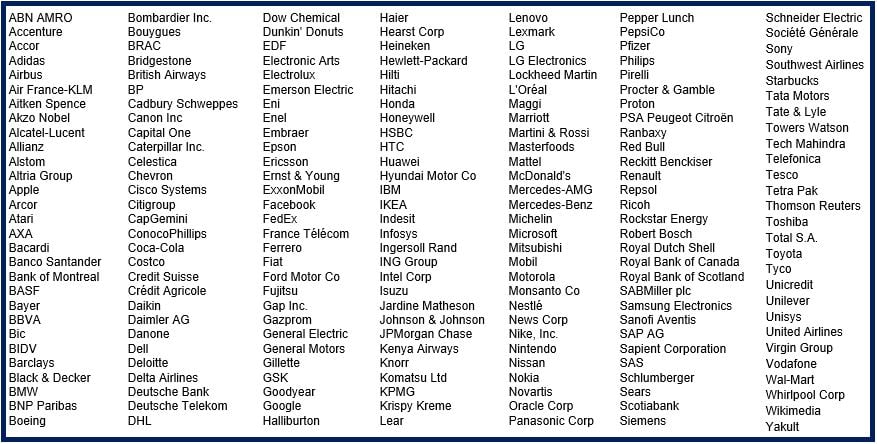A Multinational Company, known more commonly as a Multinational Corporation or Transnational Corporation in North America, is a business with branches, offices, or production facilities in more than one country. People often refer to them as Multinationals.
Multinationals also play a crucial role in bridging cultural and economic gaps by fostering global collaboration and cross-cultural exchanges among their international workforce.
Some people say that any firm that derives at least one-quarter of all its business abroad is considered a multinational corporation. However, if all that foreign business comes purely from exports and the company has no offices, premises, or production facilities abroad, it is not a multinational.
According to the United Nations, the largest 100 multinational corporations control about 40% of global trade.
For the past 100 years, the vast majority of the world’s largest multinational companies have been either Western European (Volkswagen, Nestle, BP), American (Ford, Coca-Cola, Procter & Gamble) or Japanese (Toyota, Sony, Mitsubishi).
Since the turn of the century, new multinationals have emerged in other regions, such as in South Korea (Samsung and Hyundai), Mexico (Grupo Bimbo, Cemex), and China (Lenovo, Huawei).
Why do companies expand into other countries?
Companies become multinationals for several possible reasons:
To gain new markets – a business may find that it has reached saturation point at home and needs to find new markets. Initially, they may begin by exporting to other nations, but eventually will set up production, distribution and sales facilities abroad.
Coca-Cola followed US solders around the world after WWI.
Lower costs – the cost of labor and land may be lower abroad. Businesses are always looking for ways to increase profits; lowering costs is one way of achieving this. A car-factory worker in Mexico, for example, earns less than one-sixth per hour than his or her US counterpart.
To avoid tax – different countries have varying levels of corporate tax. By setting up abroad, a company may be able to reduce its tax bil.
To overcome trade barriers – some countries are protectionist and will only let overseas businesses access their markets fully if they manufacture their products locally.
Government grants – in the 1980s, for example, the UK government attracted many overseas companies by offering them financial incentives.

Some people are anti-multinationals
Anti-multinational advocates say these giant entities enter countries with low human rights and environmental standards and operate in ways they are not allowed to back at home or in the advanced economies.
There is also apprehension that multinational corporations might have too much influence on politicians and government policy, for example, by threatening to reduce the number of jobs in a country and move them elsewhere if decisions do not go their way.
As they operate in several different nations, with varying tax systems, multinationals are today criticized by the press for paying much less tax than they allegedly should.
They are accused of setting up sophisticated networks of subsidiaries and associated businesses in countries with extremely low rates of tax, such as Luxembourg, and through legislation loopholes in major economies devise ways to dramatically reducing their tax bills. Smaller companies say this makes it much harder for them to compete.
Multinationals offer benefits for the host country
Multinational companies (MNCs) offer the host country several benefits. By operating in a country, investment, employment and income levels increase. The host country’s industries also get the latest technologies from abroad through MNCs.
Management expertise enters the host nation, which over the long term spreads as local people learn about it.
By operating in the host country, local traders and market intermediaries have more business.
MNCs create competition and break local monopolies. Economists say this makes local competitors try harder, which leads to superior products and services.
By producing more goods because the MNC operates there, the host country can export more and reduce imports – this improves its balance of payments.
MNCs generally offer better pay than local employers in low-income and emerging nations. A Mexican worker employed in a BMW auto plant will earn more per hour and have better career prospects compared to working as a farm hand or other seeking employment with a domestic company.
Economists say MNCs help emerging economies develop more rapidly.
Multinational corporations often drive innovation and research and development (R&D), contributing to scientific advancements and new technologies that can benefit multiple sectors globally.
The spread of multinationals across the planet is part of the rapid economic globalization which is taking place, i.e. the mobility of people, technology, capital goods and services across borders. Businesses and countries are becoming increasingly interdependent.
